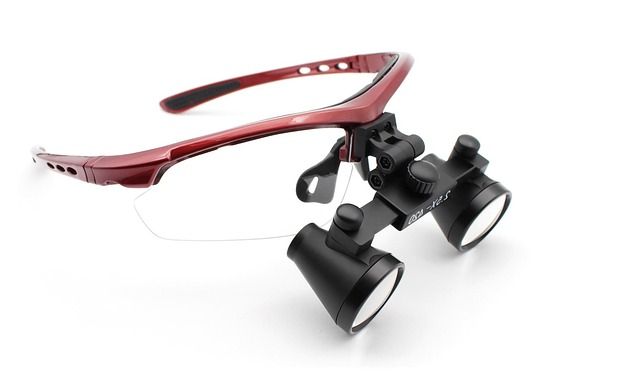LASIK Eye Surgery in Germany: Experience Clear Vision
For those residing in Germany and feeling burdened by glasses or contact lenses, LASIK eye surgery offers a promising solution. This quick and effective procedure aims to correct vision, allowing individuals to embrace life without the reliance on corrective eyewear.

Understanding LASIK Eye Surgery and Its Benefits
LASIK (Laser-Assisted In Situ Keratomileusis) is a refractive surgery that permanently changes the shape of the cornea, the clear front part of the eye, to improve vision and reduce dependency on corrective lenses. The procedure uses a specialized laser to precisely reshape the corneal tissue, correcting how light enters the eye and focuses on the retina.
The benefits of LASIK are substantial and life-changing for many patients. Most notably, it offers freedom from glasses and contact lenses, which can be particularly beneficial for athletes, professionals who work in challenging environments, and anyone tired of dealing with foggy glasses or dry contact lenses. The procedure also provides quick results, with many patients experiencing improved vision within 24 hours. Most people achieve 20/20 vision or better after surgery, though results can vary based on individual circumstances and pre-existing conditions.
In Germany, LASIK procedures utilize the most advanced technology available, including wavefront-guided treatments that create a detailed map of your eye’s unique imperfections for truly personalized vision correction. This precision approach often results in fewer side effects and better overall outcomes compared to conventional LASIK methods.
What to Expect During the LASIK Procedure and Recovery Time
The LASIK procedure itself is surprisingly quick, typically taking only about 15-30 minutes for both eyes. Before surgery, you’ll have a comprehensive eye examination to ensure you’re a suitable candidate. On the day of the procedure, eye drops with a mild anesthetic will be administered to ensure comfort.
During the surgery, the ophthalmologist creates a thin flap in the cornea using either a microkeratome (a precision surgical tool) or a femtosecond laser. This flap is folded back to expose the underlying corneal tissue. Then, an excimer laser precisely removes microscopic amounts of tissue to reshape the cornea according to your pre-determined treatment plan. Finally, the flap is repositioned and naturally adheres back to the eye without stitches.
Recovery from LASIK is remarkably fast for most patients. You may experience some mild discomfort, burning, or itching for several hours after surgery, but this typically subsides quickly. Most patients notice improved vision immediately, though it may be blurry or hazy at first. Vision typically stabilizes within a few days, with full recovery taking about 1-3 months.
In German clinics, post-operative care is comprehensive. You’ll likely have follow-up appointments the day after surgery, then at regular intervals over the following weeks and months. During this time, you’ll use prescribed eye drops to prevent infection and inflammation and promote healing. Most patients can return to work within 1-2 days, though you should avoid strenuous activities and swimming for at least a week.
Exploring LASIK Eye Surgery Options in Germany
Germany offers a range of LASIK procedures tailored to individual needs and eye conditions. Standard LASIK is suitable for treating common refractive errors like myopia, hyperopia, and astigmatism. For patients with thin corneas or higher prescriptions, options like LASEK (Laser Epithelial Keratomileusis) or PRK (Photorefractive Keratectomy) might be recommended.
More advanced options include Femto-LASIK, which uses a femtosecond laser instead of a mechanical microkeratome to create the corneal flap, resulting in more precise flap creation and potentially better outcomes. For patients over 40 experiencing presbyopia (age-related difficulty reading close-up), monovision LASIK or reading vision correction procedures might be suitable alternatives.
German eye centers also offer specialized treatments like ReLEx SMILE (Small Incision Lenticule Extraction), a minimally invasive procedure that doesn’t require creating a flap, offering faster recovery and reduced dry eye symptoms for some patients.
When selecting a clinic in Germany, consider factors such as the surgeon’s experience and qualifications, the technology available, comprehensive pre-operative assessments, and thorough aftercare provisions. Renowned eye centers can be found throughout major German cities including Berlin, Munich, Hamburg, and Frankfurt, many with English-speaking staff to accommodate international patients.
LASIK Costs and Clinic Comparison in Germany
LASIK surgery in Germany is generally not covered by standard health insurance as it’s considered an elective procedure. However, the investment delivers excellent value considering the quality of German healthcare and the potential lifetime savings on glasses or contact lenses.
| Clinic | Location | Technology | Price per Eye (€) |
|---|---|---|---|
| Euroeyes Clinics | Multiple cities | Femto-LASIK, ReLEx SMILE | 1,800-2,500 |
| Care Vision | Nationwide | Wavefront-guided LASIK | 1,600-2,200 |
| LASIK Germany | Berlin, Munich | Standard and Femto-LASIK | 1,500-2,300 |
| University Eye Clinic | Munich | All LASIK variants | 1,800-2,600 |
| Optical Express | Multiple locations | iLASIK, Wavefront | 1,700-2,400 |
Prices, rates, or cost estimates mentioned in this article are based on the latest available information but may change over time. Independent research is advised before making financial decisions.
Most clinics offer financing options with monthly payment plans to make the procedure more accessible. The cost typically includes pre-operative assessments, the procedure itself, and post-operative care for up to one year. Some clinics also offer package deals for treating both eyes or discounts for multiple family members undergoing treatment simultaneously.
Preparing for LASIK Surgery in Germany
Preparation for LASIK begins with a comprehensive consultation to determine your eligibility. Not everyone is a suitable candidate—factors like corneal thickness, pupil size, stable vision prescription, and overall eye health influence eligibility. Most clinics require patients to stop wearing contact lenses for 1-4 weeks before evaluation and surgery, as contacts can temporarily alter corneal shape.
Before surgery day, arrange for someone to accompany you home, as you won’t be able to drive immediately after the procedure. Avoid wearing eye makeup, perfumes, or lotions on the day of surgery, and follow any specific instructions provided by your clinic regarding medications and fasting requirements.
German clinics are known for their thorough pre-operative workup, which typically includes corneal topography, wavefront analysis, pachymetry (corneal thickness measurement), pupillometry, and comprehensive eye exams. This detailed assessment ensures your treatment plan is perfectly tailored to your unique vision needs.
The combination of German engineering precision, strict healthcare regulations, and advanced technology makes Germany an excellent destination for those seeking LASIK surgery with exceptional outcomes and comprehensive care.
This article is for informational purposes only and should not be considered medical advice. Please consult a qualified healthcare professional for personalized guidance and treatment.




